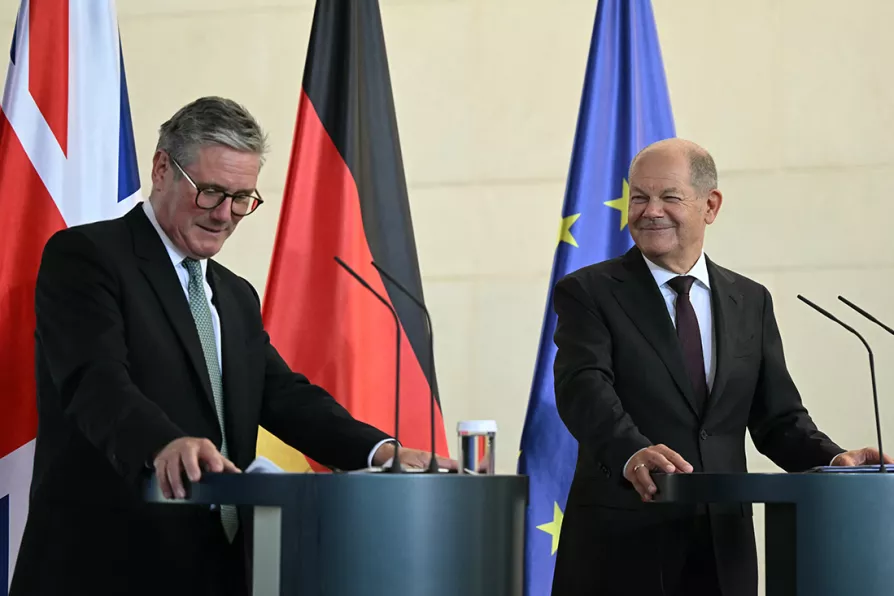Starmer endorses new treaty with Germany

 Prime Minister Keir Starmer (left) and German Chancellor Olaf Scholz during a joint press conference at the Chancellery in Berlin, during his visit to Germany and France, August 28, 2024
Prime Minister Keir Starmer (left) and German Chancellor Olaf Scholz during a joint press conference at the Chancellery in Berlin, during his visit to Germany and France, August 28, 2024
PRIME MINISTER Sir Keir Starmer endorsed a new treaty with Germany today as a first step in binding Britain closer to the European Union once more.
The pact, agreed in principle during a visit to German Chancellor Olaf Scholz in Berlin, will cover trade, business, science, technology and development and be formally signed early next year.
Sir Keir claimed it represented a “once-in-a-generation chance to deliver for working people in Britain and in Germany.”
Similar stories

With Labour abandoning its base through welfare cuts and warmongering, a genuine progressive alternative is urgently needed but must avoid any whiff of Trump infatuation syndrome and national populism, argues ANDREW MURRAY

Meanwhile, Keir Starmer says government will ‘take on the nimbys’ by reducing the right to appeal against major infrastructure projects












